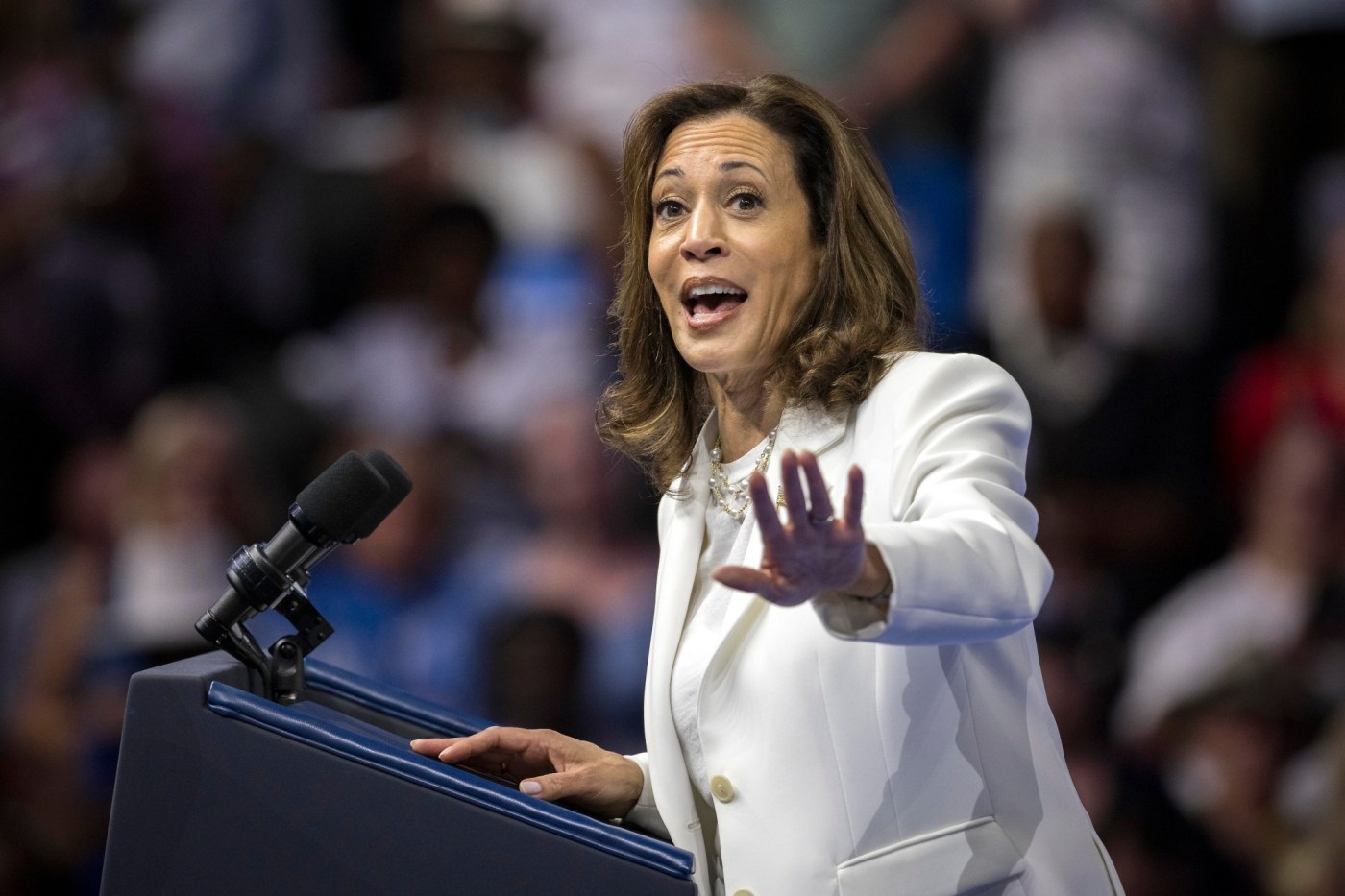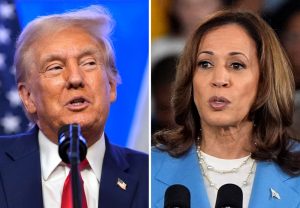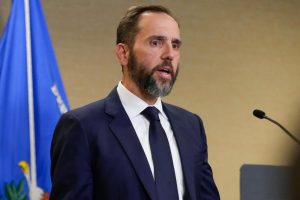
Clive Crook: Harris should reflect on what liberalism means
The U.S. has rarely seemed as divided by politics. The parties’ leaders and most energetic supporters see their opponents as enemies more than fellow citizens, and as a mortal threat to their hopes for the American project. Many Americans with lives beyond politics see this framing of what’s at stake — politics as a fight to the finish over the nation’s soul — as the real danger.
Hyperbolic divisiveness is one big reason why steady substantial majorities tell pollsters that the country is on the wrong track, regardless of who’s in power. Could the coming election make a difference? Division is second nature for Donald Trump; it’s hard to imagine him any other way. But there’s an opening here for Kamala Harris, if she chooses to grasp it.
This isn’t just about moving to the center, wise as that would be in many areas of policy. It’s about understanding that most Americans are liberal in the original sense of the term — and that the most committed political combatants are not. The disconnect that matters is between America’s fiercest political warriors, progressive and conservative alike, and the country they claim to stand for.
Western liberalism, as conceived in the U.S., says individuals are equal before the law. The new nation denied the full rights of citizenship to women and enslaved people, but this shouldn’t disguise the revolutionary character of liberalism at the outset. The idea that rights are pre-ordained according to social rank had ancient roots and through most of human history simply wasn’t questioned. The U.S. established itself in opposition to that creed. The great majority of Americans understand this and are rightly proud of it.
This idea of liberalism makes demands on day-to-day politics. Notice that “liberal” has two complementary meanings — one concerned with freedom (“liberty”) and the other with generosity (“liberality”). A system that insists on the equal rights of individuals breaks down without a measure of tolerance, open-mindedness and unselfishness toward one’s fellow citizens. “Equal rights” points to democracy as the only legitimate form of government, and by the same reasoning demands civility, mutual respect and a willingness to lose the argument — not because it’s nice to be polite, but because liberalism is a culture of equal standing.
Liberalism expects forthright disagreement on the proper role of state versus market, the scope of the safety net, the design of immigration laws and all the other hard questions that modern democracies must confront, and even on the values and beliefs people hold most dear. It doesn’t advance one true faith or hope to build the perfect society. Its overriding purpose is to let individuals disagree peacefully and productively as they pursue their own ideas of the good life, always respecting the rights of others to do the same.
Americans need no schooling on all this. They are instinctively liberal in the sense I’m invoking. As an immigrant, I can attest that these quintessentially liberal traits — freedom and fellowship — are also characteristically American. But the country’s political leaders and their most ardent supporters have other priorities. Progressive or conservative, they have a fight to win, and liberal restraint is often unhelpful.
Trump’s critics rightly draw attention to his illiberal or anti-liberal propensities — especially his efforts to overturn the election of 2020. His conduct over that was despicable and ought to be disqualifying. But which norm of liberal propriety calls for the Supreme Court to be packed if it renders judgments Democrats dislike? Why is it illiberal for Trump to contemplate firing hundreds of civil servants he deems to be obstructive but liberal for unelected regulators to act as legislators in all but name? “Lawfare,” celebrated by many Democrats as the remedy for Trump and his works, is a euphemism for selective prosecution and makes a mockery of equality before the law.
Trump’s angriest critics demand “liberal democracy” at any price while scorning the fathomless stupidity of roughly half their fellow citizens. So much for equal standing. The left’s most illiberal instincts have mirrored the right’s in a politics of competing catastrophisms, the death of democracy on one side and the death of freedom on the other. The watchword for responding to existential threats is always “by any means necessary” — the sentiment that crystallizes the illiberal worldview.
How might Harris respond? I wouldn’t have recommended “the politics of joy” as a campaign theme: It sounds slightly deranged. Still, it’s more appealing to liberals than the politics of rage or the politics of dread. Liberalism, I’m arguing, is as much about temperament as ideology, and the liberal temperament is optimistic.
On policy, to be sure, Harris is largely unformed and often uninformed. First a steely prosecutor, then a police defunder; in 2020 she was memorably in favor of “Medicare for All” until somebody explained what it meant; in 2024 she sees high food prices and thinks, “gouging.” For campaigning purposes, however, lack of conviction plus a sense of what most people want to hear could be a vote-winner. It was striking that “freedom” and “opportunity” figured so prominently at the Democratic Party’s convention. Both are impeccably liberal ideas, standing in marked contrast to the illiberal left’s preferred “equality” (of outcome) and “justice” (as in, “no justice, no peace”).
Whether Harris, if elected, would govern as the kind of liberal that voters want is another question. Barack Obama promised to unify the country but governed as if he wished to reinvent it. Biden cast himself as the right kind of liberal in 2020 then bowed to progressives who think “opportunity,” as opposed to “equity,” misses the point. The mere fact that Harris campaigned as a liberal would give voters no reason to believe she’d depart from this pattern once basking in the joy of victory.
On the other hand, as I say, Americans are optimists — and the alternative is Trump.
Clive Crook is a Bloomberg Opinion columnist and member of the editorial board covering economics. Previously, he was deputy editor of the Economist and chief Washington commentator for the Financial Times.


